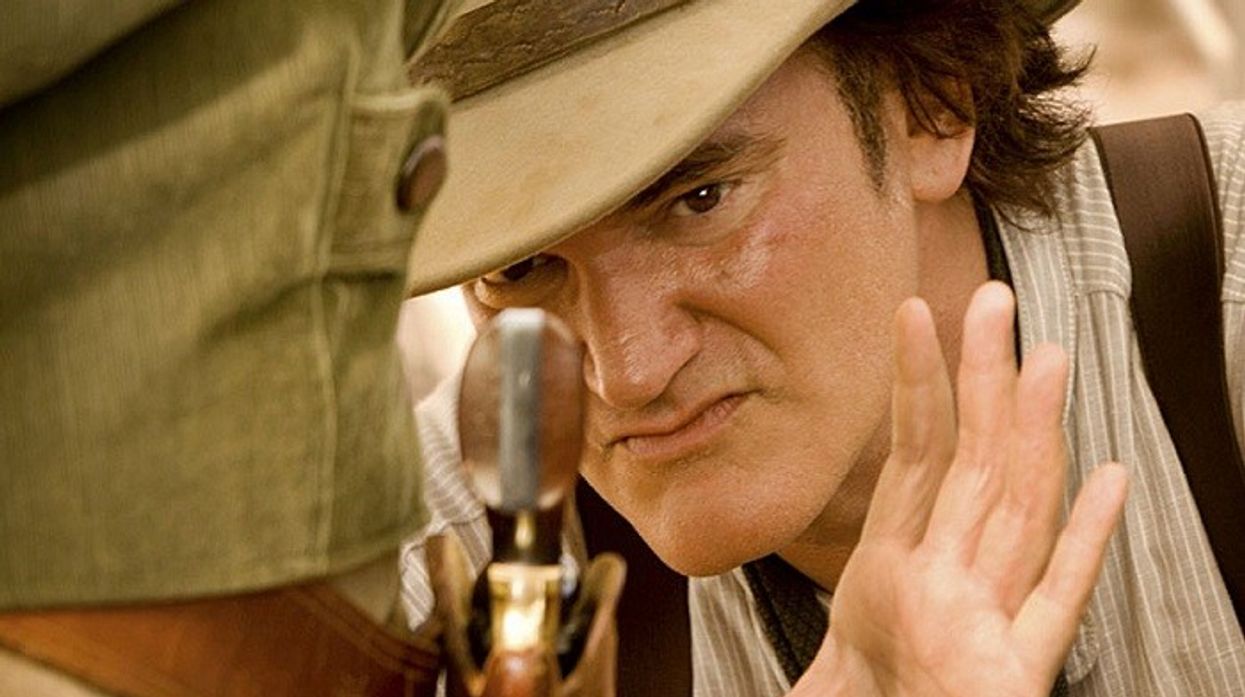Tarantino Says "See Something Else" If You're Upset with His Films
There are a few controversies that follow the filmmaker, but he doesn't seem to care.

Quentin Tarantino is a force to be reckoned with in the filmmaking world. His distinct brand of arthouse action in which he uses violence to deconstruct cinema is heavily influenced by the films of the director’s youth. In his novel, Cinema Speculation, Tarantino celebrates the Blaxploitation genre and its use of violence and language to comment on social issues.
While his films aren’t as deep as certain films from that era, Tarantino’s ultra-cool and stylishly violent movies like Pulp Fictionand Django Unchained have found some negative attention from hyper-conservative critics.
Tarantino has faced backlash for his cinematic violence and use of the N-word since the beginning of his career, but he has always been defended by other filmmakers and talent. But having filmmakers and notable celebrities on your side doesn’t always mean that the general public agrees with how Tarantino deals with sensitive material in his work.
During his promotional tour for his quasi-autobiographical book, Cinema Speculation, Tarantino spoke plainly about the many controversies around the subject matter and dialogue in the filmmaker’s work. According to Variety, when Chris Wallace asked on the host’s HBO Max talk show about his use of graphic violence and the N-word, Tarantino said, “See something else.”

Tarantino on His Controversial Subject Material
On the talk show, Wallace asked Tarantino, “So when people say, ‘Well there’s too much violence in his movies. He uses the N-word too often.’ You say what?”
“Then see something else,” Tarantino responded. “If you have a problem with my movies, then they aren’t the movies to go see. Apparently, I’m not making them for you.”
Samuel L. Jackson, who has starred in Tarantino films from Pulp Fiction to Django Unchained and The Hateful Eight, has long defended his collaborator’s use of the N-word, which is often tied to historical context. “It needs to be an element of what the story is about. A story is [about] context—but just to elicit a laugh? That’s wrong,” Jackson said earlier this year to the Times.
Jackson said, “Every time someone wants an example of overuse of the N-word, they go to Quentin—but it’s unfair. He’s just telling the story and the characters do talk like that. When Steve McQueen does it [with 12 Years a Slave], it’s art. He’s an artist. Quentin’s just a popcorn filmmaker.”
While some actors like Leonardo DiCaprio have questioned Tarantino’s overuse of the N-word while filming Django Unchained, Jackson and Tarantino said that it is a part of the story and serves a purpose.

Yes, the slur is a slur, and I assume Tarantino understands this when he is writing his screenplays since he hasn’t used the word to evoke laughs from audiences. Instead, Tarantino is being a writer and is trying to capture the truth of the moment he has created. Whether the audience agrees with his writing or not is merely an opinion.
Violence in Tarantino’s films has always been a strange subject. The violence can be extreme, but, like the use of language, it speaks to a truth that Tarantino has created.
Whether or not you like Tarantino’s work or have a problem with his use of language or violence is a personal matter that shouldn’t discredit the filmmaker’s talent and uniqueness in cinema.
The conversation around his work and how it affects communities or groups of people is a subject that exists outside of the world Tarantino has created, and they are conversations that should be happening.
At the same time, we have to give credit to Tarantino as a filmmaker who has revolutionized modern cinema.
What do you think? Let us know in the comments.
Source: Variety











